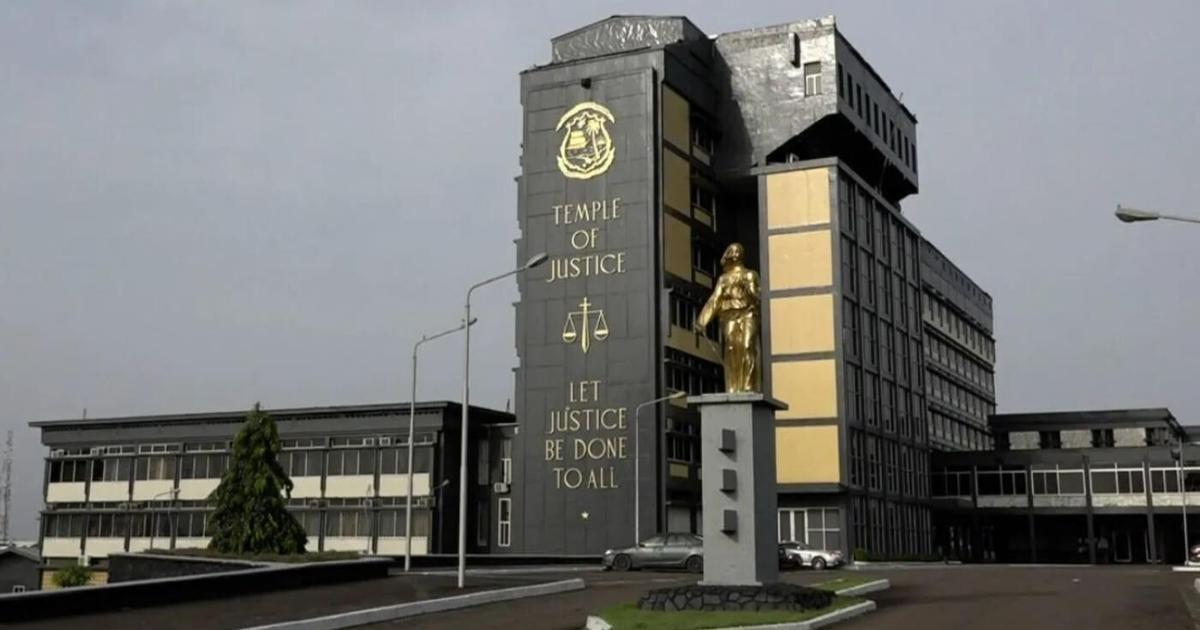Africa-Press – Liberia. Judge Scheaplor R. Dunbar, in a candid revelation, has acknowledged the prevalent public perception of bribery and corruption influencing judicial outcomes within Liberia’s courts. Speaking at the opening of Criminal Courts A, B, C, D, and E for Montserrado County on May 13, 2024, Judge Dunbar shed light on the challenges faced by the judiciary in upholding fairness and impartiality in legal proceedings.
Recognizing the detrimental impact of compromised judicial neutrality, Dunbar admitted instances where judges may have shown a bias towards party litigants and their counsel, adversely affecting the administration of justice.
The admission of such shortcomings underscored the broader concerns regarding the credibility and integrity of the legal system in Liberia, particularly among those seeking justice and protection of their rights through the courts.
Judge Dunbar attributed the compromised judicial practices, in part, to systemic challenges faced by judges and magistrates, ranging from inadequate salaries and benefits to understaffing and limited resources within court facilities.
The prevailing circumstances, including the harmonization of salaries and benefits, were acknowledged as exacerbating factors contributing to low morale and challenges in maintaining judicial integrity.
The courts are expected to be the avenue where concrete evidence is required before a judge could make the informed judgment, but it is different in Liberia, Dunbar said.
“As a judge, I must admit that sometimes we are not fair and impartial in the handling of cases. We sometimes take sides with party litigants and their counsel to the detriment and prejudice of the other party,” Dunbar admitted. “We sometimes compromise the cool neutrality that is required and expected of us.”
According to Dunbar, their actions have left a bad impression on the courts, particularly on people who access them to seek justice and the protection of their rights.
“As magistrates and judges, we continue to face serious challenges in our various courts. We are underpaid; our courts are understaffed and under-equipped. We and our staff suffer from low morale at our various courts,” Dunbar noted. Additionally, he said, harmonization of their salaries and benefits has made matters worse for judges and magistrates.
“These are challenges we are all facing and will continue to face for a long time,” he did not raise the hope of his colleagues. “But I have not come here today to talk about our problems and challenges and how our conditions of work can be improved. These issues have been discussed at many previous opening ceremonies by other judges.”
Drawing from personal experiences, Judge Dunbar highlighted a specific case involving the perceived influence of bribery and corruption in judicial proceedings, citing an incident from his private practice involving two Lebanese nationals.
The case exemplified a scenario where external pressures and unethical practices threatened the fair administration of justice, prompting Dunbar to caution against such disregard for judicial ethics.
Narrating his experience, Dunbar said: “When we appeared at the court, I tried to prepare a parole bond for my client so that we can be given time to file a proper Criminal Appearance Bond. While trying to post the parole bond, the Associate Magistrate issued a commitment for my client as he was being taken to the Central Prison. I hurriedly went to see him, but he ordered me out of his chamber.”
Dunbar revealed that based on the associate magistrate’s action, he had no other alternative but to have the then Chief Justice involved. “The Chief Justice immediately intervened and ordered the magistrate to allow me to sign for my client, and by that, we have been given time to file the proper Criminal Appearance Bond,” Dunbar said of the magisterial court’s operation.
He claimed that after filing the bond; the magistrate refused to proceed with the case. “When we filed an approved criminal appearance bond with the court, the case ended right there, so the real aim of the private prosecutor was to use the court to disgrace and humiliate his opponent,” Dunbar said.
Dunbar, however, accused the magistrate of being financially influenced by the private prosecutor to absurd the rights of his client. “The magistrate connived with the private prosecutor to violate the rights of my client by refusing to allow us to post a bond. He just wanted to jail my client based on the request of the unscrupulous private prosecutor,” Dunbar noted.
This incident, according to Dunbar, happens frequently throughout the country. “People go to jail not because they are unable to post a bond, but simply because a party litigant had prevailed on a judge or magistrate to ensure that the defendant goes to jail,” Dunbar maintained his stance on corruption in the Judiciary.
In a call to action directed at his colleagues, Judge Dunbar urged judicial officers to uphold the principles of fairness and integrity, reminding them of their responsibility to adhere to the Judicial Code and refrain from actions that undermine the justice system.
“If you are a judge or magistrate that engages in such a blatant violation of the Judicial Code you must stop immediately and do not use your Gavel and authority to violate the rights of others,” he emphasized.
Meanwhile, the frank discourse delivered by Judge Dunbar sheds light on the complex challenges facing Liberia’s judiciary and underscores the imperative for transparency, accountability, and ethical conduct within the legal domain to restore public trust and uphold the rule of law.
For More News And Analysis About Liberia Follow Africa-Press






